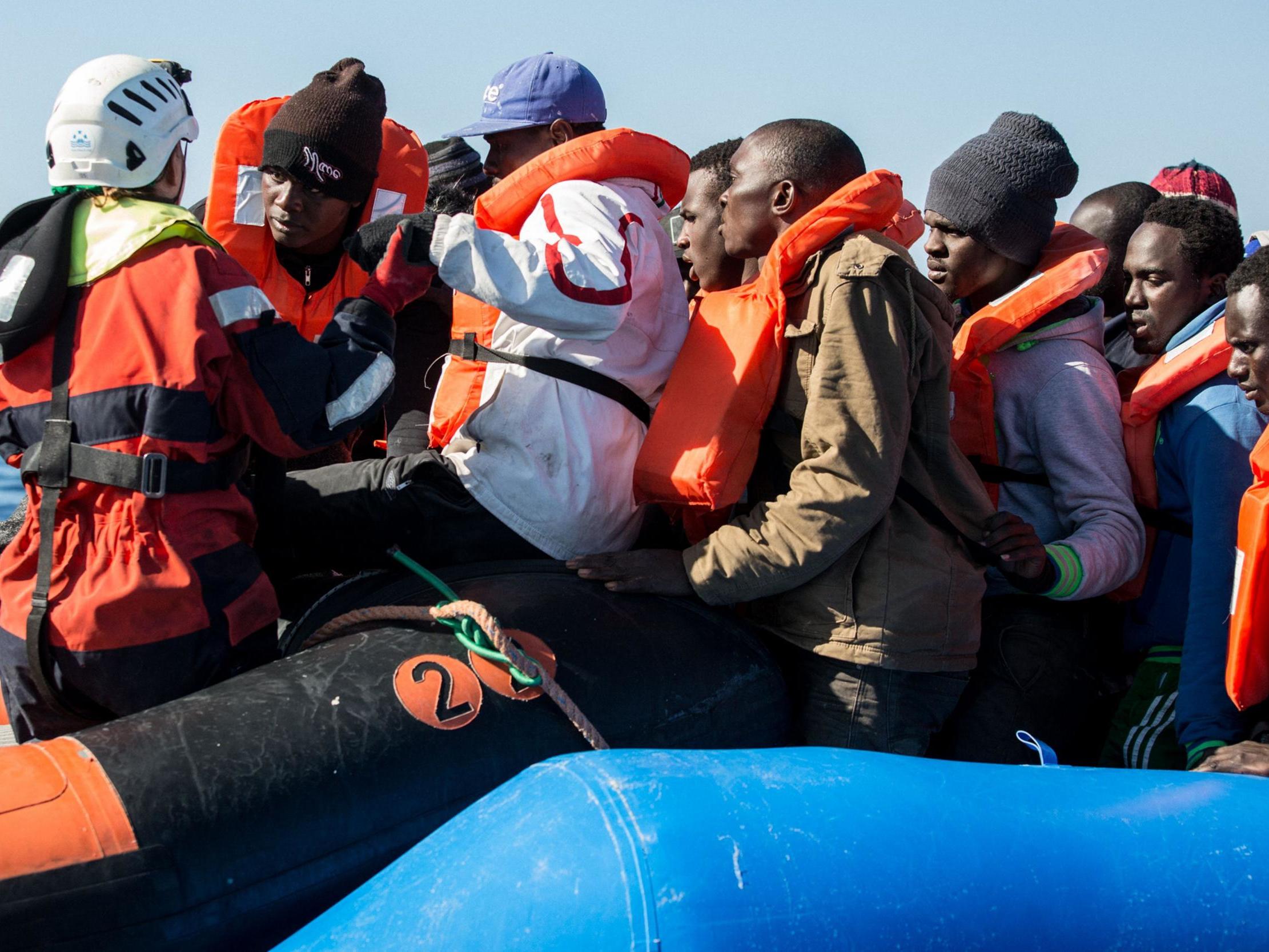More than 140 rescued refugees taken to Libya despite violence and human rights abuses
'Survivors tell us they suffer torture, forced labour, physical and sexual violence,' UNHCR spokesperson says

Your support helps us to tell the story
From reproductive rights to climate change to Big Tech, The Independent is on the ground when the story is developing. Whether it's investigating the financials of Elon Musk's pro-Trump PAC or producing our latest documentary, 'The A Word', which shines a light on the American women fighting for reproductive rights, we know how important it is to parse out the facts from the messaging.
At such a critical moment in US history, we need reporters on the ground. Your donation allows us to keep sending journalists to speak to both sides of the story.
The Independent is trusted by Americans across the entire political spectrum. And unlike many other quality news outlets, we choose not to lock Americans out of our reporting and analysis with paywalls. We believe quality journalism should be available to everyone, paid for by those who can afford it.
Your support makes all the difference.United Nations aid organisations have criticised European countries for closing their ports to migrant vessels after more than 140 people rescued in the Mediterranean were taken to a detention centre in Libya.
An estimated 144 refugees and migrants, including four children and four pregnant women, were taken to a detention centre in Misrata, northwestern Libya, on Sunday after they were rescued by cargo ship Lady Sham, according to the UN's refugee agency.
Wracked with violence and widespread human rights violations, Libya is a dangerous destination for refugees and migrants, UNHCR spokesman Charlie Yaxley said.
“Refugees returned to Libya after being rescued in the Mediterranean face automatic detention upon their return. In these detention centres, they face appalling, squalid conditions,” Mr Yaxley told The Independent.
“Reports from survivors tell us that they suffer torture, forced labour, physical and sexual violence at the hands of the unscrupulous smugglers who seek to profit on the desperation of people fleeing war, violence and persecution."
Italy has barred rescue vessels from entering its ports since mid-2018 when a populist government came to power.
Italy’s interior minister, Matteo Salvini, has said the ports will remain closed to deter human traffickers.
Following Italy’s refusal, Spain and Malta said they would accept some of the migrants rescued at sea, but not before lengthy negotiations with other EU countries.
The UNHCR called on European countries to stop “politicking around sea rescues” and focus on a solution to the humanitarian crisis in the Mediterranean.
“Politicians must stop using human beings for political pointscoring and to instead address this as a humanitarian issue, with saving lives the priority,” the UNHCR said in a statement.
Human Rights Watch said this week that migrants detained in Libya are “trapped in a nightmare” and that the European Union is perpetuating a cycle of abusive detention rather than protecting vulnerable people.
Migrants held in Libyan detention centres, including many children, suffer severe malnutrition, overcrowding and violence, the human rights group said in a 70-page report.
“Fig-leaf efforts to improve conditions and get some people out of detention do not absolve the EU of responsibility for enabling the barbaric detention system in the first place,” said Human Rights Watch’s Europe director Judith Sunderland.
An estimated 170 migrants drowned in the Mediterranean last week after two overloaded dinghies capsized off the coast of Libya.
Survivors told the International Organisation for Migration (IOM) that one of the dinghies was transporting 120 people.
An estimated 200 people have already drowned trying to reach Europe in January and more than 4,000 have attempted the crossing, according to the IOM.
Join our commenting forum
Join thought-provoking conversations, follow other Independent readers and see their replies
Comments